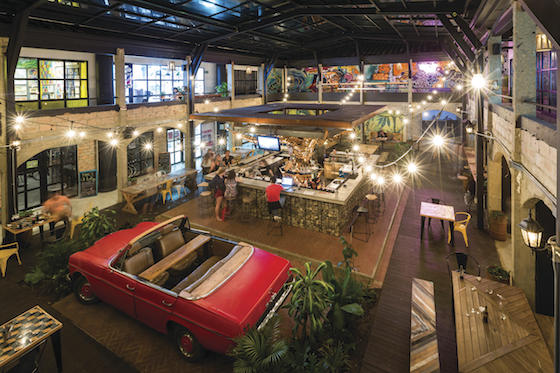The old adage about there being more than one way to skin a cat comes to mind when considering two disruptors: Oyo Homes and Selina. Both have frothy values and are currently spending more than they are making, but they also have the ability to create unique and alternative experiences.
Oyo Rooms, the India-based hybrid, is leveraging technology to quickly and cheaply convert and brand a huge number of fragmented economy hotels overlooked by the industry giants that don’t want to play in the most budget of budget segments.
Another low-cost startup, Selina, is a hostel, private room mix for the emerging “digital nomads” who don’t like offices and want to connect with the world. It focuses on co-working, recreation, wellness and local experiences. And it’s cheap, with beds selling for an average of US$20 to US$30 at its initial units in South America, while F&B and other services account for 30% to 60% of revenue.

Selina operates about 46 properties in 13 countries, with over 22,000 beds open or under conversion, and with US$225 million in funding it boasts plans to reach 130,000 beds and over 400 properties by 2023. It takes 20-year leases and has a lot of potential to add content and work with any number of property types, with conversion costs of between US$3,000 and US$5,000 per bed.
“As we’ve seen in co-working and ridesharing, millennials and Gen Z are redefining how they want to live, work and explore the world,” says Selina co-founder and CEO Rafael Museri. “The ambitious and adventurous nature of these generations prove that there is a demand for our experiential hospitality model today and for years to come.”
Oyo has raised nearly US$2 billion in capital to fund its plan. Founder Ritesh Agarwal says Oyo could be the world’s biggest hotel company, already stating it has more than 500,000 rooms in a system that is less than five years old. In 2018, Oyo claims it booked more than 75 million room nights.
Its strategy is to keep the value proposition simple and affordable, and easily booked via an app. Guests get a clean, cheap room with simple brand standards.
Oyo also says it can bring new units onboard in two weeks with an artificial intelligence-led design approach and an app to quickly determine needed upgrades to flooring, plumbing, HVAC, etc., as well as project budgeting, contracting and tracking for all the stakeholders.
Agarwal says more than 75% of hotel owners associated with Oyo Hotels have seen a 20% to 30% jump in occupancy, 2.5 times higher RevPAR and significant gains in profit.
That speed, and those results, have powered Oyo’s astounding growth. “It may sound crazy, but I think they could grow out to have 5 million to 7 million rooms in the next six to seven years,” says consultant Manav Thadani of India-based Hotelivate.

